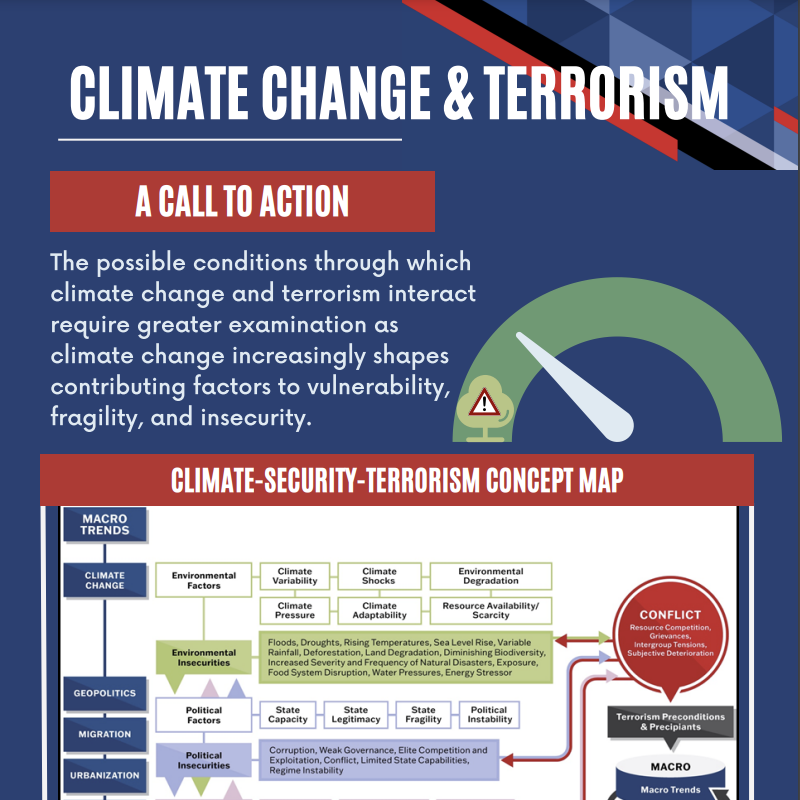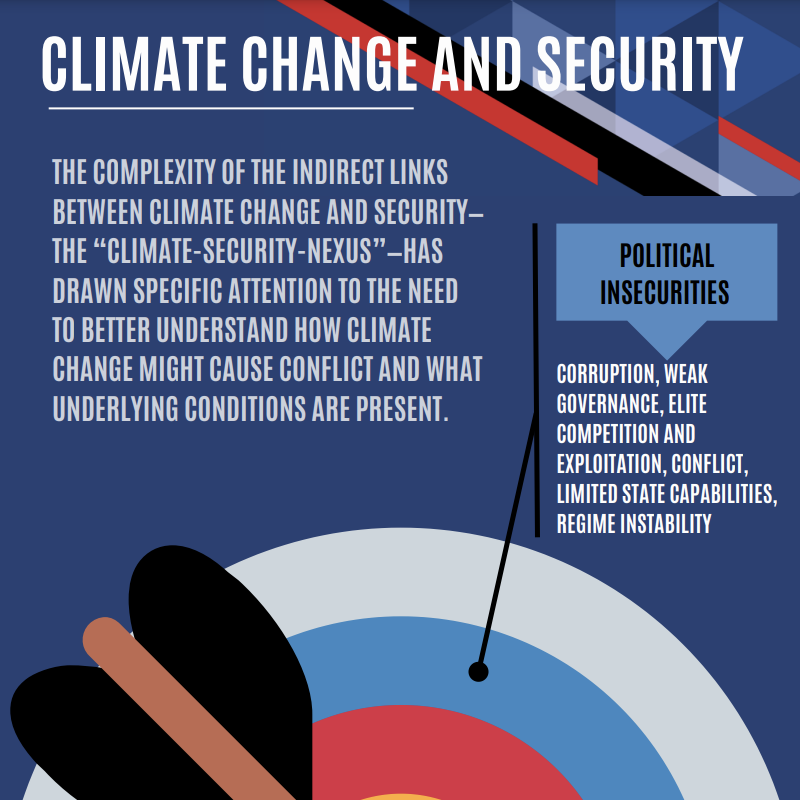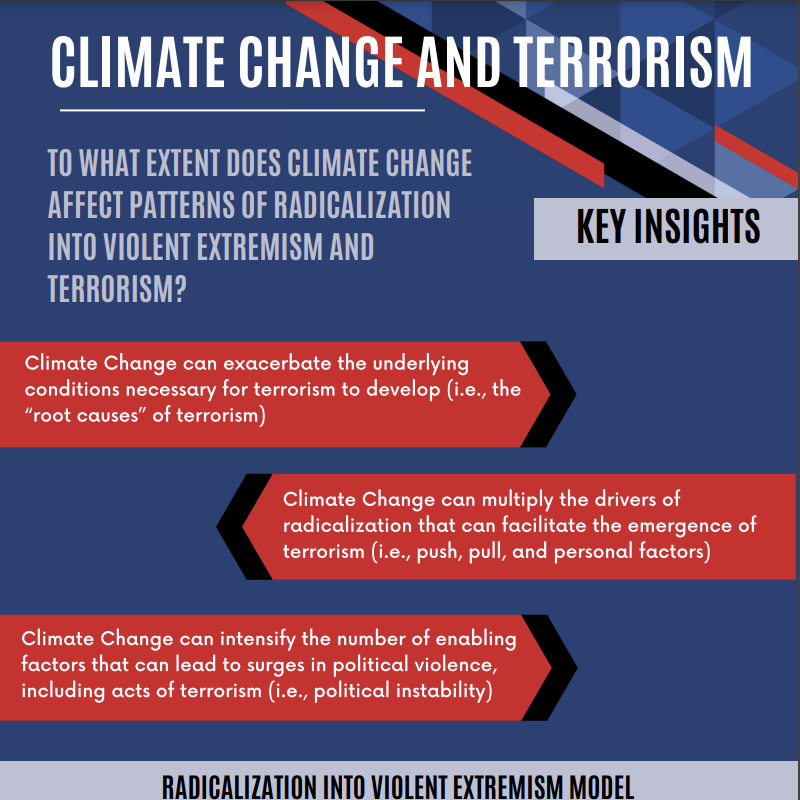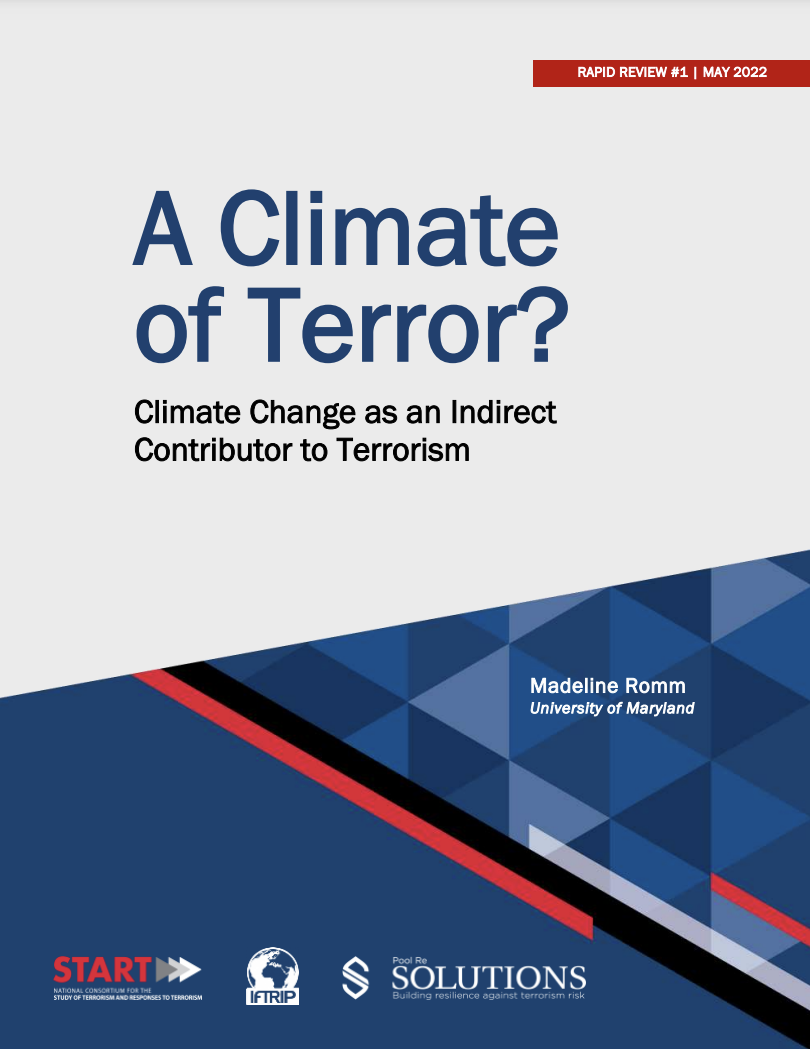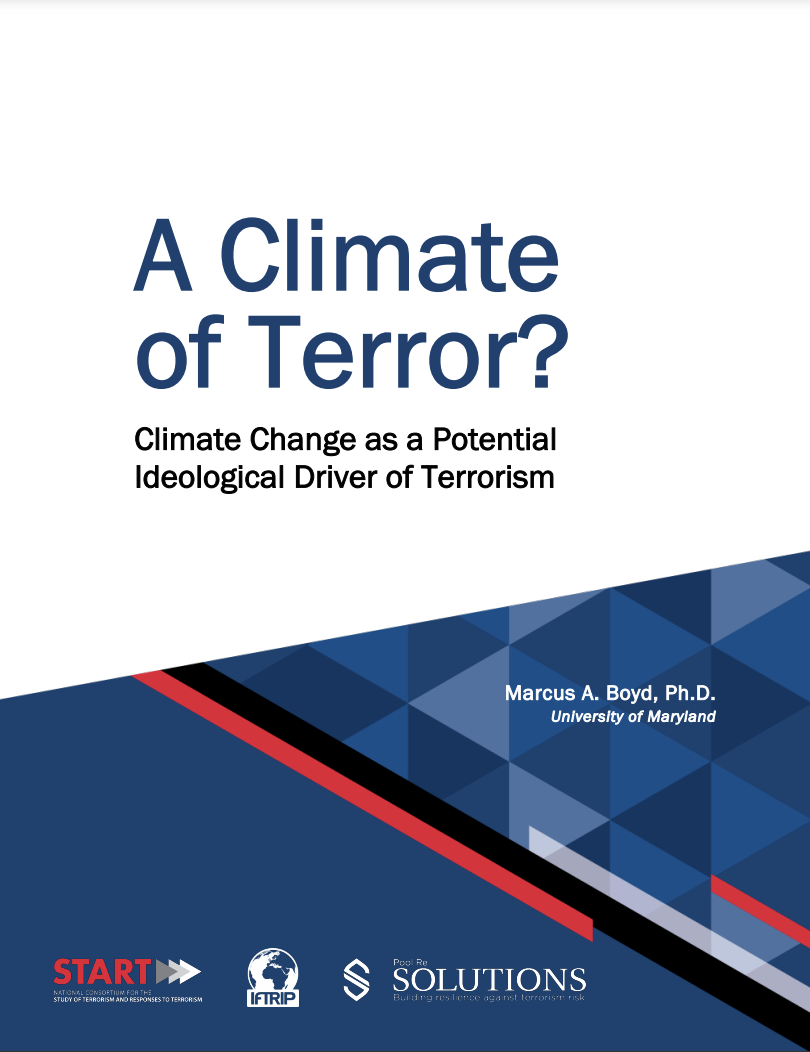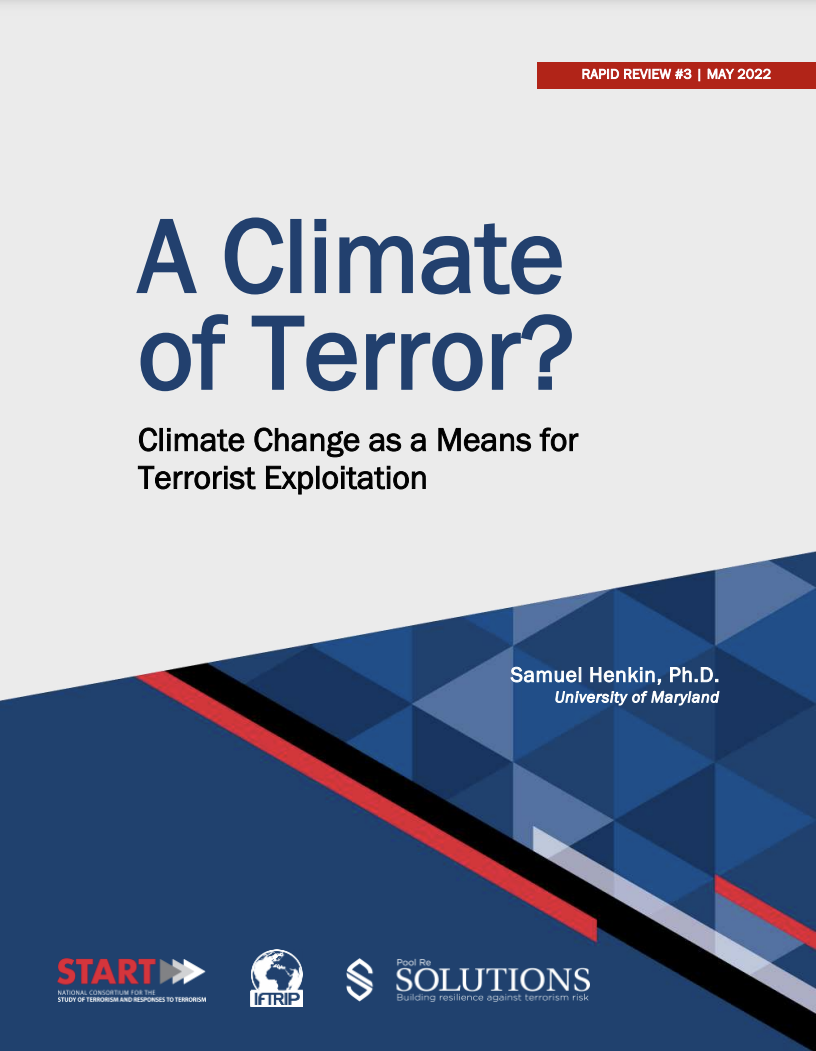Project Details
Climate change is one of the most significant global issues of our time. In a recent United Nations Security Council Meeting, UN Secretary-General António Guterres stressed that “no one is safe from the destructive effects of climate disruption.” As our awareness and understanding of climate change increase, the links between climate change and security have become an essential area of inquiry. There is increasing acknowledgment within the research and policy communities and among the security and private sectors that climate change acts as a “threat multiplier.” As such, the complexity of the links between climate change and security, the so-called climate-security nexus, has drawn specific attention to the need to better understand how climate change and terrorism interact. The overall goal of this research agenda is to delve into three possible climate change and terrorism interaction areas: 1) Climate change as an indirect contributor to terrorism; 2) Climate change as an ideological driver of terrorism; and, 3) Climate change as a means for terrorist exploitation to control or coerce populations.
Climate change and terrorism appear to interact in three ways: as an indirect contributor, as an ideological driver, and as a means with which to control populations.
The research team is conducting a series of three Rapid Reviews to synthesize the state of knowledge across multiple research questions related to the three interactions areas.
Visual Highlight Briefs

